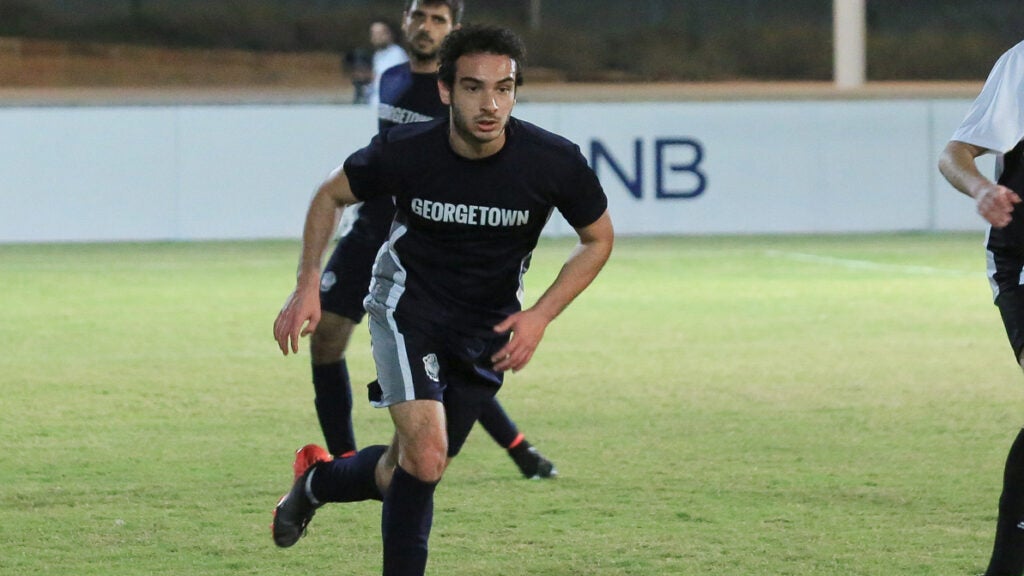From Football to Foreign Service: A Georgetown Story

If you asked any of the flag-waving children at Qatar’s Asian Cup homecoming celebrations what they want to be when they grow up, they likely would have said “football player.” And it’s no wonder. The sports victory produced far more than a trophy – it made sports history, boosted the country’s World Cup host credentials, and inspired national pride in young and old alike.
For first-year student Rafael Zimmer (GU-Q ’22), football dreams also led to a personal victory celebrated as a national win in his home country of Brazil. By the time he graduated high school, he had already made a name for himself as an athlete. But he traded in his boots for books, taught himself English, and made headlines for gaining acceptance into more than 20 universities around the world.
“No one supported my dream to go to college because it was so far outside the reality of someone in the public school system. Families need everyone working to earn an income, so university life is only for the wealthy,” said Rafael.
In a country where the benefits of economic development remain out of reach for those without access to private education, sport, and football in particular, is a rare and inspiring path to success and financial freedom. Rafael was no different. He started playing in empty lots at the tender age of 8, joining his first club at 13 and taking a daily 30 minute bus ride to the neighboring town to play. “When you play in professional clubs, it’s very tough, very competitive. As a kid it wasn’t enough for me to get on the team – I had to defend my spot every single day.”
On the field, he helped his team win three 1st place championships and placed 2nd in a fourth. He also played futsal, indoor football, helping seal the victory in the championship game. And in the classroom, he developed a deep interest in the world outside.
“I lived in a small town my entire life, so I had this vision that I wanted to know more about other cultures, people, and history.” He would practice all day and attend school in the evening, one of the two daily sessions offered by the overcrowded school system. “I would come home and study until 2:00am, just to keep my grades up.” After graduation, he set his sights on college, and found his first champion in his mother.
She supported him as he learned English by watching YouTube videos to prepare for university entrance exams. But it was when she overheard him chatting fluently on a phone call, that she became convinced. “At that point, she stopped just letting me. She started to believe in me.”
His YouTube video showcasing his athletic skills, an industry standard in the competitive world of football, started to attract international recruiters. And then the offers of scholarships started to pour in. Top universities in the U.S., Europe, Hong Kong, and three schools in the Philippines, wanted the talented athlete to play for them while pursuing his studies. And the Brazilian media took notice. “I gave so many interviews about my story because I wanted to be an example, to send a message to young people in a public school system they don’t feel gives them hope, that their dreams are within reach.”
Ultimately, he applied to Georgetown University in Qatar on his academic credentials, and was accepted. “I think he made the best of choices in coming here. The quality of our academic program is unparalleled and the energy and opportunities generated by Qatar’s football ambition are palpable, perfect for a student like Rafael,” said Joseph Hernandez, the director of admissions.
Now in his first year of a degree in International Politics, Rafael still plays football whenever he can, for the GU-Q team and in practices with a local club. But closest to his heart is the mission to inspire the youth of his country to dream big too, and win.